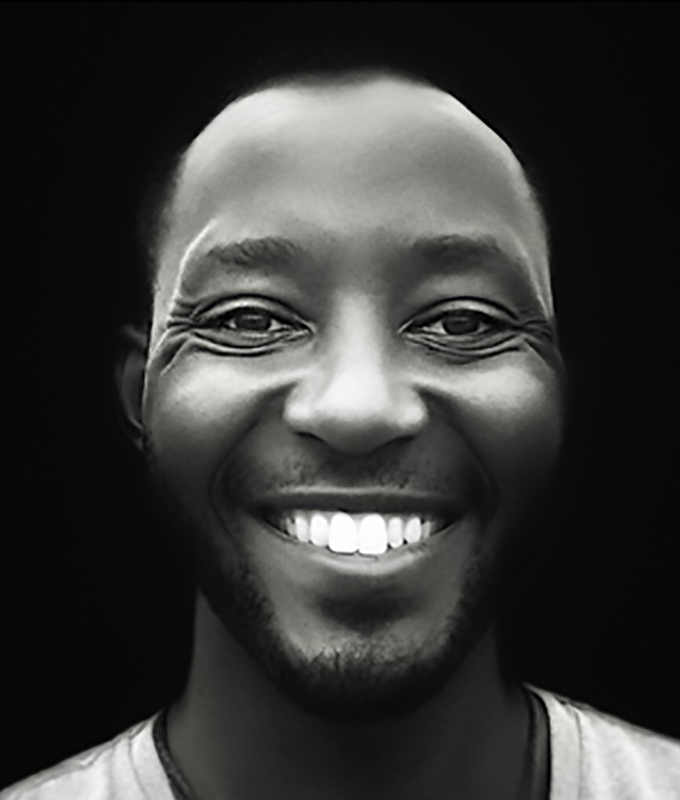Lawrence Weru
Consultant & Digital Storyteller
“I asked myself: ‘How do you use storytelling to impact public health?’
Storytelling is a way for me to take the listener out of their own body and into someone else's for a while. If I can tell a good story, I stand a chance of making someone care about something they otherwise wouldn't care about. I haven't ever made anyone care about something by transforming into a textbook and preaching facts to them.
But when I deliver those facts through narrative -- by telling a story -- something peculiar happens: a simulation starts to light up in the listener's mind.”
Lawrence came to the (Media, Medicine & Health program) with a strong sense of narrative already under his belt. But he knew that even with a couple viral articles and a TEDx talk, he needed to work on his approach to target a wider audience about niche issues.
Was there a pivotal point in (this course) where you saw a change in your reach?
“When I covered the topic of stuttering as tech moves towards voice as a contributing writer for Slate, I intentionally delivered the message through storytelling. I kept it nonfiction; everybody that I mentioned was real, and every situation was real. But I took those characters and situations and arranged them into a story.
I think delivering the message through a narrative helped the message resonate with more people and travel further than it would have done otherwise. For example, my piece was shared by senior leaders at Amazon and Google, and Gizmodo translated the story into Japanese and published it on their Japanese publication. Although it was only 1,000 words, through the use of storytelling the message traveled halfway around the globe.”
What part of (this course) did you find the most impactful?
“Getting to learn from some of the world's best writers was a privilege. My siblings and I grew up watching ER and Law & Order SVU. Now as a writer, getting to see Neal Baer's thought process behind some of the storylines was eye-opening for me. I resonated strongly with Dr. Koven's lecture on essay writing. Jason Silverstein helped me explore what makes a good pitch and how to find a story.
Participating in this program led me to engage with editors for the first time. I was professionally edited for the first time, and I got an inside look at their thought processes. I gained insights on why they choose titles why they choose the stories that they do. While many of these things weren't part of the core curriculum, we were encouraged to publish and I learned these things in the process.
How did your (participation in the course) create change in your life?
“One month into the program I decided to try my hand at pitching health stories, and I successfully pitched my first op-Ed. While I was interested in publishing my story regardless of the publication, the publication turned out to be Slate. I never thought I'd be writing for them, so this gave me the confidence to keep pitching more stories, and share what I learned with program participants who wanted to tell their own stories. I also started pitching stories with program participants, and along the way became a contributing writer for Vox, the Orlando Sentinel, and KevinMD.
During (the program), former White House policy director and frequent NPR, CBS, NBC, and MSNBC guest expert Kavita Patel gave a lecture on telling health stories as a TV commentator. During her talk she mentioned the Clubhouse app, which was the topic of my Slate story. We connected afterwards and ended up hosting a "Thriving as a Health Expert in the Media" clubhouse chat.
After my Slate story about stuttering was published, movie director Ryan Gielen reached out to me to say "hi and thank you" for writing the story. He had just recently released his documentary "My Beautiful Stutter" on Discovery Plus, and invited me to screen the film. After I watched the documentary I discovered that one of the film's producers is Mariska Hargitay, who worked with program director Neal Baer on Law & Order SVU, which makes it a really small world. I've kept in touch and hope to see his future work.”
Collaboration was also a key element of learning in the course, with Larry and fellow students writing about the oxygen shortage crisis in India.
“All of us contributed something unique, from primary care expertise, to global health expertise, to understanding of the global business specifics, to editing. It was a stronger piece than I could have written by myself. When it ran, it was featured as one of Vox's top stories and was quoted by billionaire Marc Benoif, who had announced he was working to deliver oxygen concentrators to India via plane. The story led Ruchit Nagar and Gaurab Basu, who we interviewed for the piece, to be connected with people looking to help with the oxygen situation. Getting together to tell this story was a way for us to reach people we otherwise wouldn't have reached, even if we didn't know exactly who we needed to reach beforehand.
One of the hidden gems of (this program) is that it places you among a cohort of like-minded people, taught by people who "get" the point of storytelling.”
